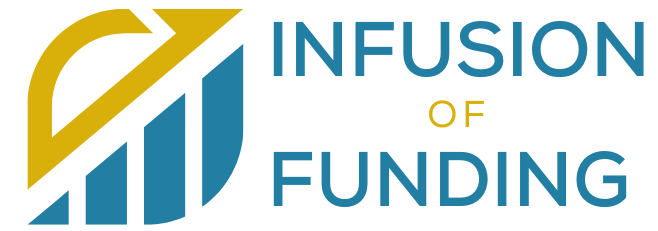Definition and Types of Loans
Securing a loan is a crucial step for many small businesses to fund their growth, manage cash flow, or invest in new opportunities. To make an informed decision, it’s essential to understand the various types of loans available and their specific features.
Term Loans
Term loans are the most traditional form of small business financing. These loans provide a lump sum of money upfront, which is repaid over a set period with fixed monthly payments. Term loans are often used for substantial investments such as purchasing equipment, real estate, or funding expansion projects. The terms typically range from one to ten years, with interest rates based on the borrower’s creditworthiness and the lender’s policies.
Pros:
- Predictable monthly payments
- Suitable for significant, long-term investments
- Potentially lower interest rates compared to other loan types
Cons:
- Requires good credit history
- May involve a lengthy approval process
- Collateral may be required
SBA Loans
SBA loans are partially guaranteed by the U.S. Small Business Administration, reducing the risk for lenders and making it easier for small businesses to obtain financing. These loans come in several forms, including the popular SBA 7(a) loan, which can be used for a variety of business purposes, and the SBA 504 loan, designed for purchasing fixed assets like real estate and equipment.
Pros:
- Lower interest rates
- Longer repayment terms
- Easier qualification for businesses with weaker credit
Cons:
- Lengthy application and approval process
- Extensive documentation required
- May have strict eligibility requirements
Lines of Credit
A line of credit provides flexible access to funds up to a predetermined limit. Businesses can draw from the line of credit as needed and only pay interest on the amount used. This type of financing is ideal for managing cash flow fluctuations, covering unexpected expenses, or funding short-term needs.
Pros:
- Flexible access to funds
- Interest is only paid on the amount borrowed
- Can be used for various business needs
Cons:
- May have variable interest rates
- Requires good credit history
- Credit limit may be lower than other loan types
Equipment Financing
Equipment financing is specifically designed to help businesses purchase necessary equipment. The loan is secured by the equipment itself, which serves as collateral. This type of financing is beneficial for businesses that need to upgrade or replace machinery, vehicles, or technology.
Pros:
- Easier to qualify for since the equipment serves as collateral
- Helps preserve cash flow by spreading out the cost of equipment
- Fixed interest rates and predictable payments
Cons:
- Only applicable for equipment purchases
- If you default, the lender can repossess the equipment
- May require a down payment
Invoice Financing
Invoice financing allows businesses to borrow money against their outstanding invoices. This can help improve cash flow and manage expenses while waiting for customers to pay. The lender advances a percentage of the invoice amount and charges a fee for the service.
Pros:
- Immediate access to cash
- Useful for businesses with slow-paying clients
- Can improve cash flow without taking on debt
Cons:
- Fees can be higher than traditional loans
- May require good credit and strong invoice history
- Lender may contact your customers directly
Merchant Cash Advances
A merchant cash advance provides a lump sum payment in exchange for a percentage of future sales. Repayment is typically made through daily or weekly deductions from your business’s credit card sales. While easier to obtain, merchant cash advances usually come with higher costs and shorter repayment terms.
Pros:
- Quick and easy access to funds
- No collateral required
- Repayment is tied to sales, so it adjusts with your cash flow
Cons:
- High costs and fees
- Short repayment terms
- Can be expensive if sales decline
Pros and Cons of Each Loan Type
Choosing the right type of loan depends on your business’s specific needs, financial situation, and long-term goals. Here’s a summary of the advantages and disadvantages of each loan type:
| Loan Type | Pros | Cons |
|---|---|---|
| Term Loans | Predictable payments, lower interest rates | Requires good credit, lengthy approval, may need collateral |
| SBA Loans | Lower interest rates, longer terms | Lengthy application, extensive documentation |
| Lines of Credit | Flexible funds, interest on amount used | Variable rates, good credit required |
| Equipment Financing | Easier qualification, spreads equipment cost | Equipment-only, potential repossession |
| Invoice Financing | Immediate cash, improves cash flow | Higher fees, credit and invoice history required |
| Merchant Cash Advance | Quick access, no collateral, repayment adjusts with sales | High costs, short terms, expensive if sales decline |
Understanding these different loan types and their respective pros and cons will help you make an informed decision when seeking financing for your small business.
Conclusion
Securing the right loan can significantly impact your business’s growth and success. By understanding the various types of small business loans, their benefits, and potential drawbacks, you can choose the most suitable financing option for your needs. The next section will guide you through the essential steps to prepare for applying for a loan, ensuring you are well-equipped to present a strong application to potential lenders.

